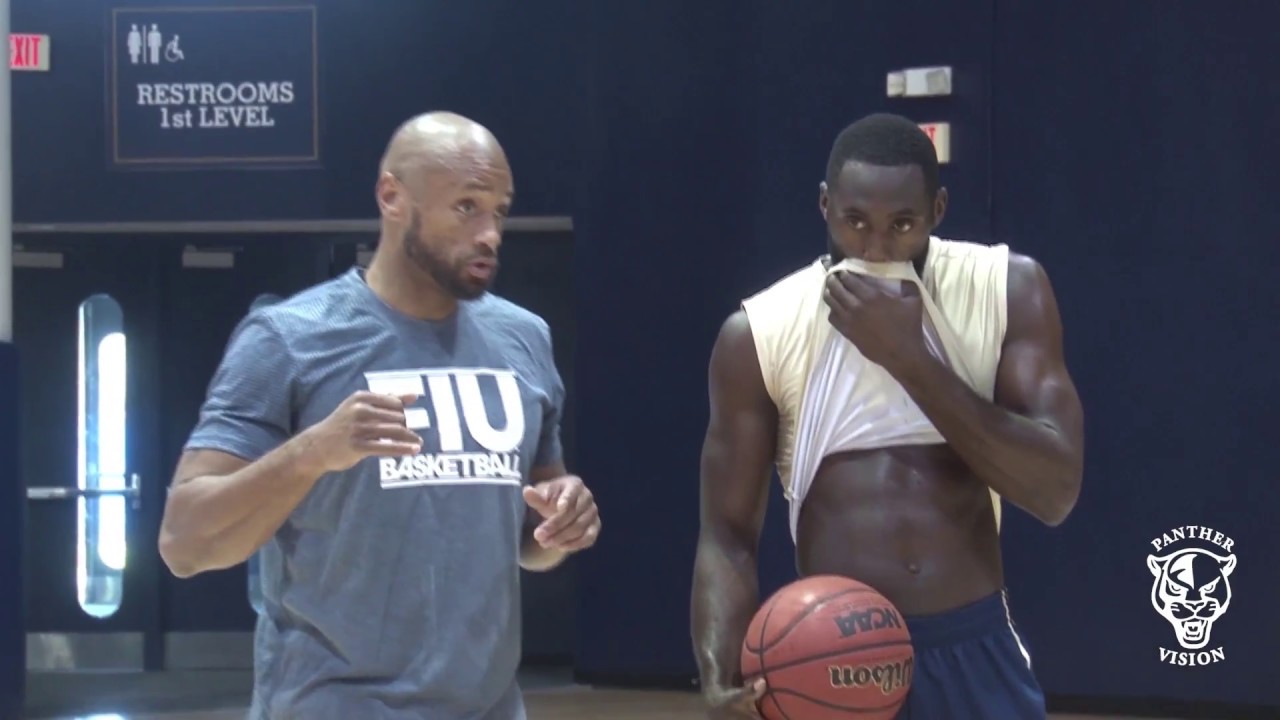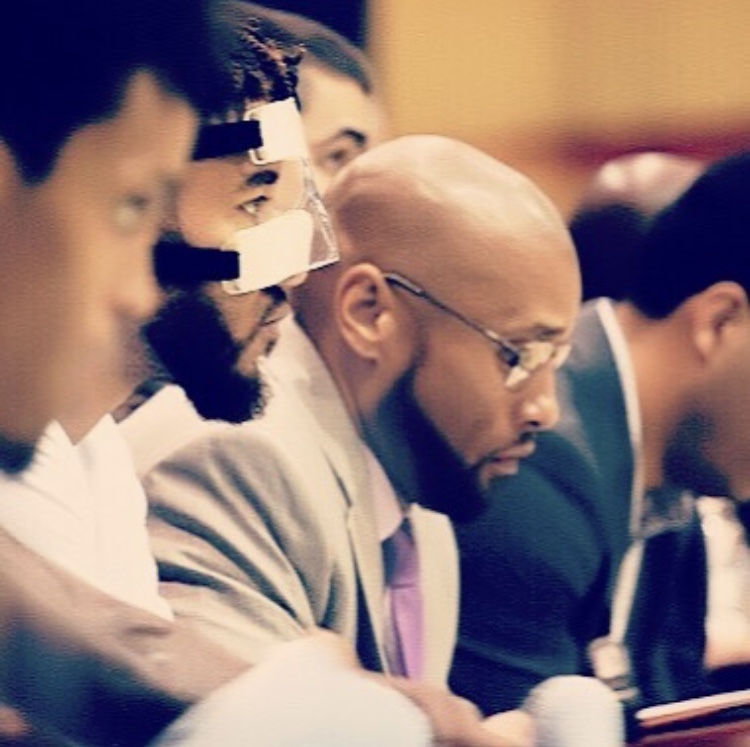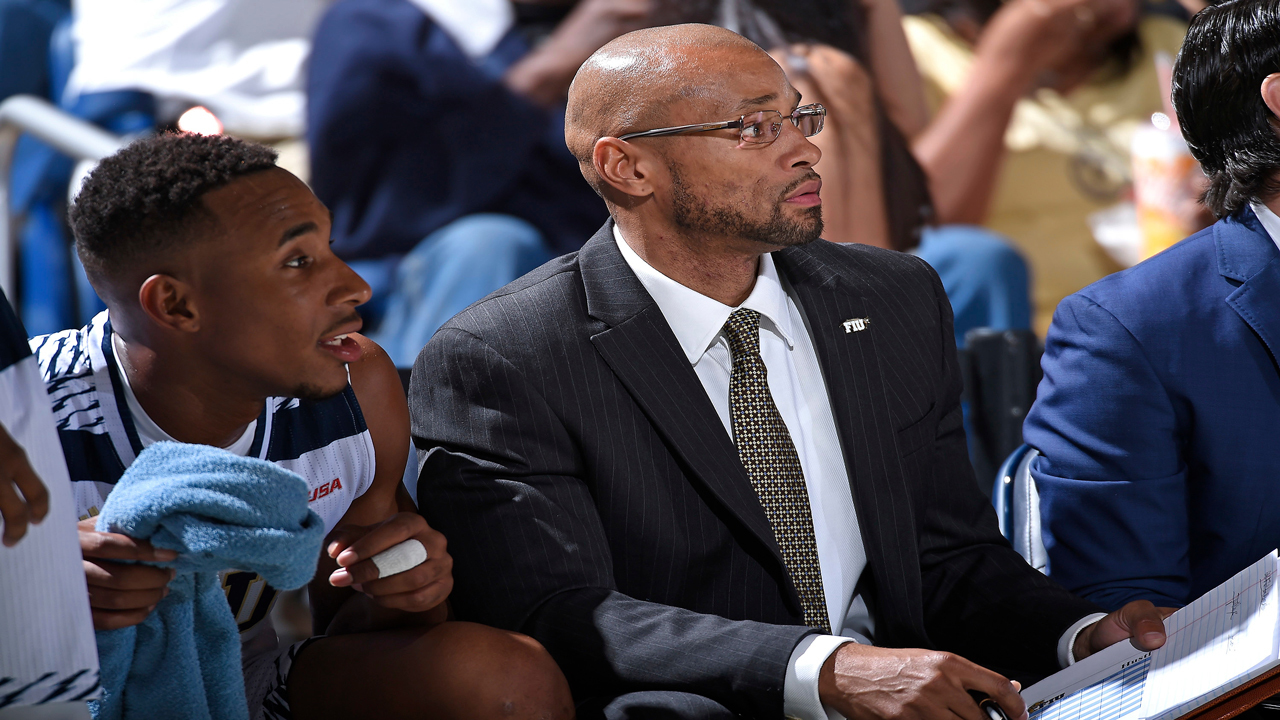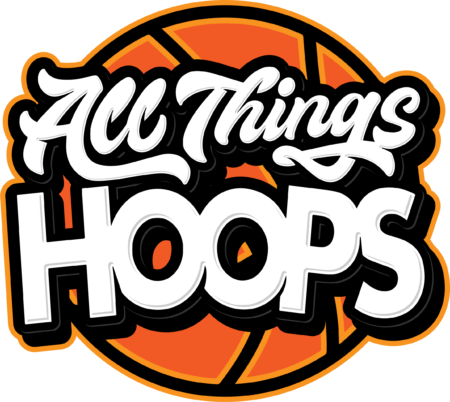The Offering: Part 3
Playing for the right coach is something that is ultimately very critical to a student athlete’s development in basketball and also in life. Certain types of coaching styles will not be for every player and every player cannot play for every coach. Philosophy, discipline, personality and system…. will all be major factors in a ball player’s decision to play for a particular coach and attend a certain school or University. For example, if you’re a post player looking to develop your game and take it to the next level, and a school that focuses primarily on letting their guards score the ball 80% of the time is recruiting you, you might want to take that into consideration; Or if you want to go somewhere that plays an uptempo kind of style, and a school that focuses more on their half-court offense and slowing the ball down is reaching out, you definitely want to think about that as well. At the end of the day, players need to be able to relate to the head coach and vice versa. Certain coaches scream more than others, others don’t scream at all. A lot of coaches will be in a player’s face and hold them accountable for everything. Some guys won’t be able to deal with that type of discipline, while others actually need the “tough love” and use it as motivation. But, at the end of the day, picking a coach to play for that fits your personality and style is the key.

Playing for the coach who will match your personality is a key to having success. (Photo courtesy of J. Lockhart)
Although transfer rates are at the highest level they’ve ever been, you want to base your college choice on whether you could play for that particular coach your entire college career. Also, researching the coach, and doing your due diligence on the program is key. How long does the coach have left on his contract? Has he won at the school? Is he potentially up for other jobs where there may be a coaching change sooner than later? These are all things to consider.
I had opportunities to play and work with some great coaches over the years……
Jim Couch; NYC Hall of Famer and Dyckman legend when I was very young competing in New York summer tournaments…….
Arnie Jacobs (RIP), NYC legend, part of Roundball Enterprises and creator of the legendary Brandeis HS & FIT workouts
Durman Player; while at the Riverside Hawks in my early AAU days ……
Thomas Fraher: Mount Saint Michael Academy Boys Basketball Head Coach where I spent my HS career…
Ralph Willard (father of Seton Hall Head Coach Kevin Willard) when I was at the University of Pittsburgh…..
Ben Howland; Head Coach of Mississippi State when I was at the University of Pittsburgh…..
Jaime Dixon, Head Coach of TCU; also when I was at the University of Pittsburgh……

It’s not always about X’s and O’s. It’s about creating a positive working relationship between coaches and players. Lockhart has coached at the Division 1 college level and now coaching at Victory Rock Prep in Florida. Photo courtesy of J. Lockhart
I recently worked as an assistant for Anthony Evans; former Head Coach at Florida International University at the Division 1 level…….
And, now I’m teaming up with the well-known Loren Jackson from Chicago at Victory Rock Prep in Bradenton, Florida.
With that being said; I’ve taken pieces of everyone’s style and applied that to either my life in general or my coaching techniques on the court. I always feel that it is of tremendous importance to learn from the people around you and always surround yourself with those that know more than you. It’s always said, that if you are the smartest person in the room, that you’re probably in the wrong room. The goal in life is to learn, apply your knowledge, and ultimately be able to give back and teach someone else from your experiences. These are what the best coaches do, in my opinion. Even though in today’s society, many leaders are judged by wins and losses, the focus on impacting lives is really the greatest accomplishment of a person dealing with young student-athletes. How did you make a difference and how did that person benefit from your influence.

Lockhart has taken bits and pieces from every coach he’s ever played for and has developed his own coaching style. Photo courtesy of J. Lockhart
The coach that makes you better as a player and as a person is the one that is the best one for you at the end of the day. Sometimes as a kid growing up, you don’t actually realize what you need until you come across that one particular coach, and it will change your life forever. Being pushed to a point where you’re able to reach your highest potential and understanding how to accept constructive criticism is key. Also having strong, positive role models in your life is the most important thing when trying to decide who to play for at the college level. You want to be led by example and have those lessons be able to teach you something far after you stop playing basketball. Sports will always reveal character and having a good foundation of people in your life allows you to be strengthened mentally in preparation for what those later years may bring in the future.
My advice:
Get a feel for the coaches recruiting you through phone calls, texts, home visits; etc. Research their style of play, personal information, coaching history, staff members, and information like how many guys have previously transferred while that coach was there. Understand where you are as a young athlete and what you can and cannot handle from a coach… has that coach produced any professionals? How many guys has he graduated? Is he easy to talk to? Demanding? Interested in you as a person? Concerned about your future? Does he ask about your family and the things going on in your life? These are all very important questions that you should ask yourself before even entertaining the thought of being recruited by a particular coach or program. Discuss these things with your family and the people close to you; ask them what they think of these coaches as people and as potential leaders. The early decisions that we make as young athletes will shape our lives forever. Chose Wisely!
#Love
Jarrett T. Lockhart
Head Coach; Victory Rock Prep (Post Grad)
Author of the book “Cheers To Fears”
Former Professional Basketball Player & University of Pittsburgh Alumni

